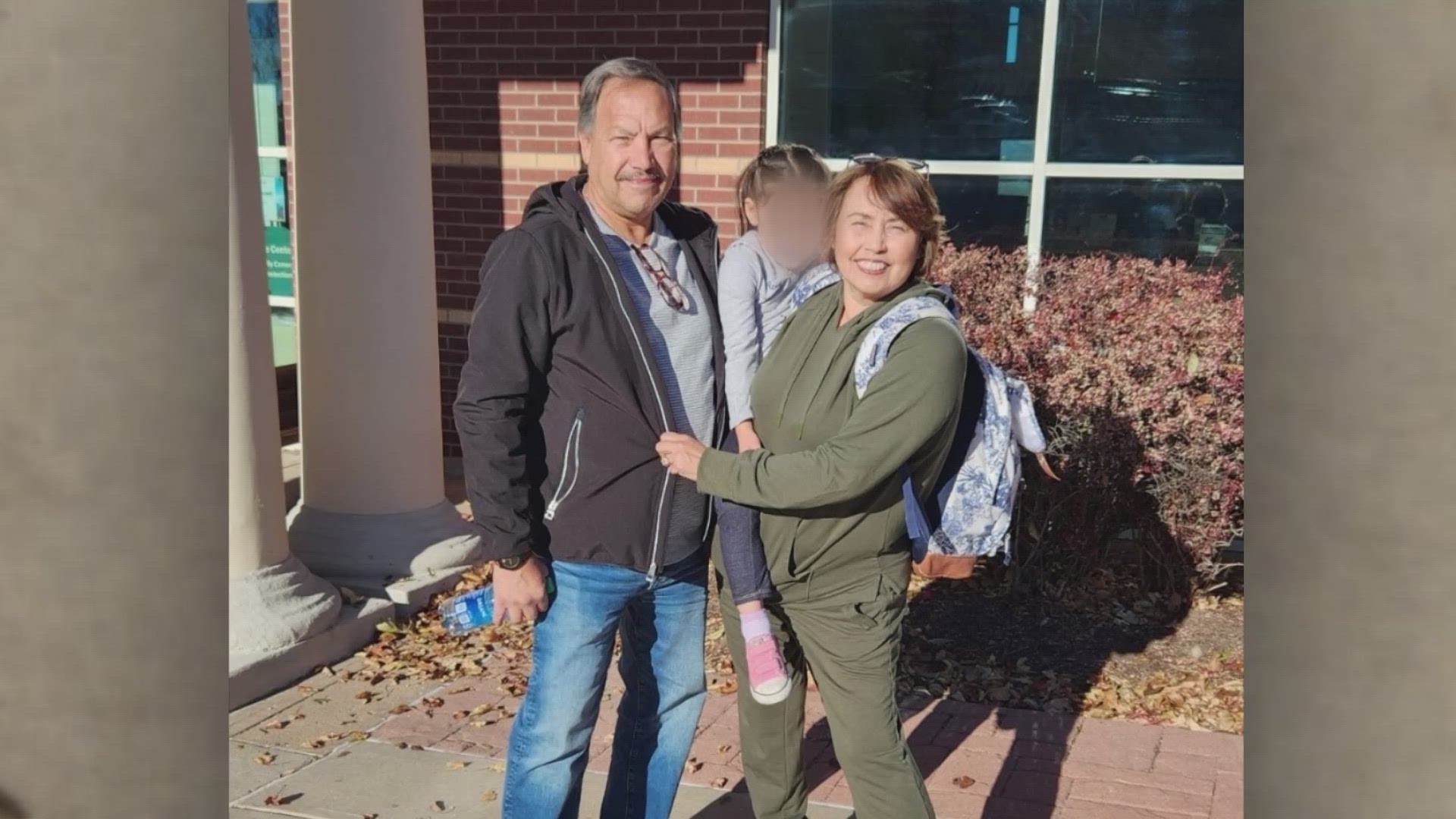EL PASO COUNTY, Colo — On a Friday afternoon in late December, Ponch and Lettie waited outside a courtroom for their case to be called. They had been coming to the El Paso County Courthouse for months, fighting for the right to raise their great niece Juliette.
"Well we're nervous, a little nervous, and scared," Lettie said. "Hopefully this is it, and hopefully the judge will make the right decision, that she belongs with us, because she is family."
Juliette had been in the care of a foster family on and off since birth. Her father is unable to care for Juliette, but he requested that his uncle and aunt, Ponch and Lettie, take custody of his 4-year-old daughter.
The foster family also wanted to continue caring for Juliette and hired a lawyer to intervene. Timothy Eirich has a long history of representing foster families in court. In 2012, Eirich successfully argued in front of the Colorado Supreme Court in the landmark case A.M vs A.C., winning significant rights for foster parents.
“I don’t think it's lost upon this court how difficult these cases are,” Eirich said in 2012.
Earlier this year, Gov. Jared Polis signed a law pulling back those foster intervention rights. HB23-1024 Relative and Kin Placement of a Child requires that courts give preference to a relative unless placement with that relative would negatively affect the child’s mental, physical or emotional needs.
“So the new law is definitely crafted to prioritize kin," said attorney Annie Martinez, who represented Ponch and Lettie in court. Martinez hoped the change in law would ensure Juliette would come home with them.
“That was the intended purpose, was to prioritize these people who have connections and to the child’s culture, heritage, family of origin,” said Martinez, who said Juliette’s case demonstrates the obstacles faced by many families when fighting for their kin in court.
“This case specifically, the court found that they hadn’t made reasonable efforts by not reaching out to this family when they had the family’s information for, I think, over 100 days,” she said.
Concerns about bias came up in August when the judge halted proceedings to assess the sobriety of the Guardian Ad Litem (GAL) – the attorney assigned by the court to represent the best interest of the child. The GAL appeared to be intoxicated during the hearing.
“The cross examination … by the GAL is stopped by the judge when questions of the GAL’s sobriety arise,” was noted in court documents.
“It’s just concerning that there wasn’t more weight added to that," Martinez said. "We didn’t get to restart the hearing. We just picked up where we left off. There wasn’t further investigation in terms of the work that the GAL did throughout the case and whether there were biases that were coming out."
Five days later, the GAL was terminated from their position with the Colorado Office of the Child’s Representative.
“I did make a record at closing that the child’s representation was ineffective because it’s really difficult to say that this was an isolated incident without further investigation, which never happened,” Martinez said.
Earlier this month, the judge read her decision in this case, determining that Juliette should remain with her foster parents, citing "attachment injuries."
You know, that ruling was hard," Martinez said. "The ruling was a difficult one to hear.”
> The video below aired Sept. 7:
“Once again, they failed us, a child that we know, she belongs with us, and I know she’s not coming with us,” Lettie said as she left the courtroom.
Martinez questioned the court's decision: “The fact that this child got placed in the same foster home that they were in before, and it is a foster home where one of the parents is a former employee of that Department of Human Services, this child never stood a chance of going to any family.”
The judge's ruling cleared a path for the foster parents to officially adopt Juliette. Ponch and Lettie said they plan to appeal and hope to at least stay in contact with Juliette as she grows up.
“My worry is that this child, if we’re not successful at appeal, is losing an opportunity to grow up in their biological family, immersed in their culture and their heritage, in their race, in their language,” Martinez said.
SUGGESTED VIDEOS: Latest from 9NEWS

